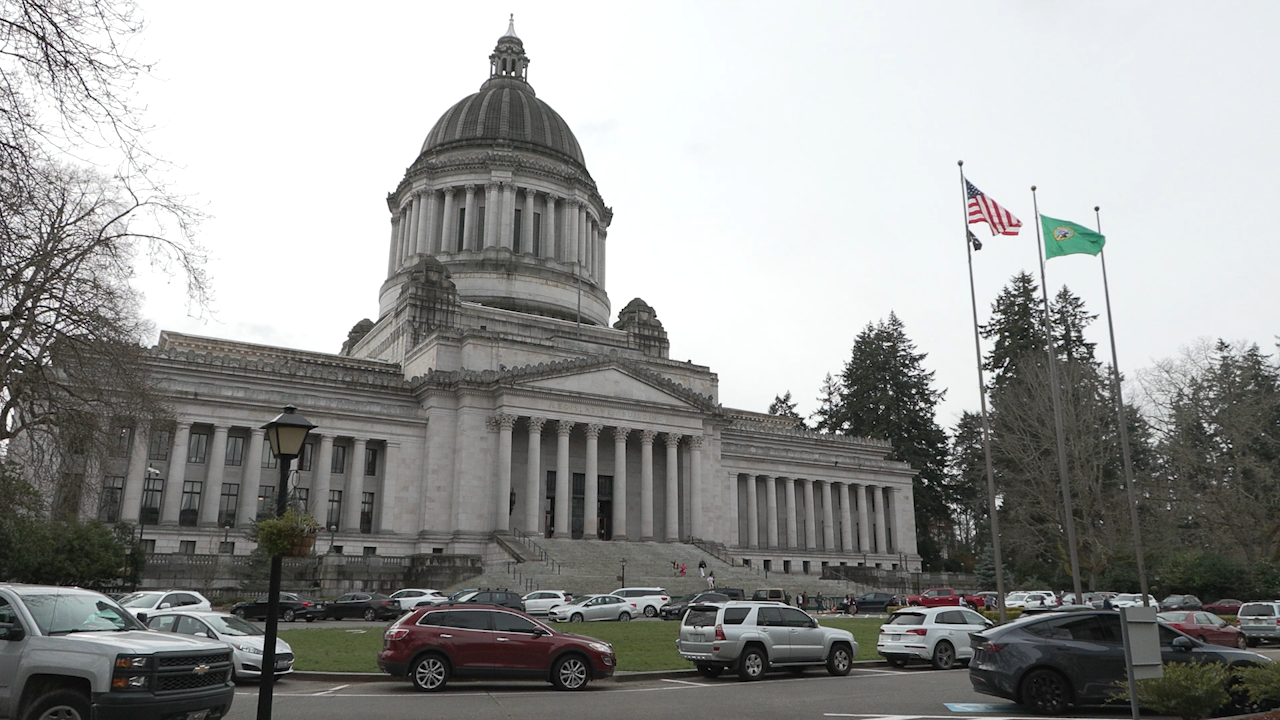SEATTLE – As federal lawmakers push ahead on cuts to Medicaid, leaders here at home are sounding the alarm about the harm it could do on healthcare – going beyond people on the joint federal and state program.
“Our state will change in fundamental ways if this goes forward,” Gov. Bob Ferguson told reporters at Harborview Medical Center on Thursday.
The Democratic governor criticized the early morning House vote on the budget bill containing cuts to Medicaid as “cruel” and “all to provide tax breaks for the wealthiest Americans.”
He said nearly 2 million Washingtonians are on the health program, but an estimated 200,000 of them could be kicked off by the end of next year if the cuts pushed by Congressional Republicans go into law. Federal funds make up over 60-percent of state Medicaid spending – but the governor said even with budget reserves, Washington, or any other state, does not have enough money to backfill any large losses in funding.
“If there is a fundamental change in Medicaid funding to the states, our rainy day reserve fund is not going to be a safeguard that protects individuals here in Washington state,” Ferguson said.
Harborview staff said reducing Medicaid eligibility ultimately affects all people, as those patients who are removed from coverage will end up in already overwhelmed emergency rooms.
“Cutting Medicaid doesn’t reduce the need for health care, it just shifts the cost – creating more illness, more disability and more unnecessary suffering,” Harborview nurse Sam Conley told reporters.
CEO Sommer Kleweno Walley said Harborview relies on hundreds of millions of dollars in federal funding to provide care to people all across the region, regardless of insurance. But threats of cuts could force hospital leaders to have “incredibly difficult conversations about what parts of Harborview can stay open and what parts we have to rethink.”
With hospitals all across the state already closing their doors because of financial troubles, Kleweno Walley said accessing care will get harder for everyone.
“If a rural hospital closes in Eastern Washington where I grew up, it’s not going to impact just individuals who receive Medicaid,” she said. “It impacts every member of the community. The entire hospital closes, the entire clinic closes.”
Dwindling care options in rural communities would ultimately force people to go out of their way to a Western Washington care facility, Kleweno Walley said, running the risk of overloading the system.
Jen Chong Jewell said Medicaid has been a great help in covering surgeries, therapies and medical equipment for her son Gabriel, who has disabilities.
“I worry that Medicaid will not be available in the future to support my son to live, one day work and thrive in his community,” she told reporters. “Especially long after I’m gone.”
Chong Jewell said she felt the need to share her story and wants others to do the same, so people can understand how Medicaid works – especially as there are misconceptions about how challenging it is to access.
“When you hear there’s these things happening – quote, unquote waste, fraud and abuse – be curious about what that actually means and what those words mean,” she said. “Because these are human lives. We’re more than just a data point or a number, we are human beings.”
As the cuts move to the U.S. Senate for their consideration, Ferguson said he hopes the stories about the harm they would cause will make senators “come to their senses and not move forward in such a draconian way.”
Albert James is a television reporter covering state government as part of the Murrow News Fellowship program – a collaborative effort between news outlets statewide and Washington State University.
COPYRIGHT 2025 BY KXLY. ALL RIGHTS RESERVED. THIS MATERIAL MAY NOT BE PUBLISHED, BROADCAST, REWRITTEN OR REDISTRIBUTED.
